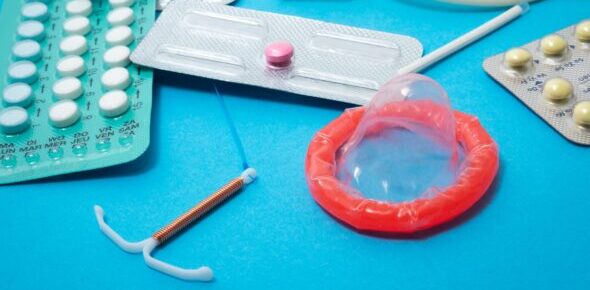
I was talking about birth control with my doctor, and she said that some types might stop me from getting my period. Isn’t that bad for you?
Great question! Since missed periods can be a sign that something is off, changes to your cycle can feel alarming. However, missing periods because of birth control is completely safe and healthy.
So, why do many people worry that stopping your period is bad for you?
It may be because changes to your menstrual cycle can signal that something has changed in your body.
For example, some people’s periods change when they’ve lost a lot of weight or are super stressed out. If you’ve been getting your period regularly and then it stops, it might be a sign of a health issue or hormonal changes. (If this happens to you and you haven’t started or changed birth control recently, you should make an appointment with your medical provider.) And of course, not getting your period can also be a sign that you’re pregnant.
In addition, some people worry that skipping periods prevents your body from shedding its uterine lining.
To explain why, we have to talk about the menstrual cycle. The menstrual cycle is a hormonal process where your body prepares itself for pregnancy.
During this cycle, your uterus (womb, where a baby would grow) builds up a lining to prepare for a fertilized egg. Your ovaries release an egg about midway through your cycle. This is called ovulation.
If the egg meets a sperm and becomes fertilized, the fertilized egg will implant in the uterine lining. This is when pregnancy begins!
But if the egg does NOT become fertilized, your body sheds the uterine lining about 14 days later. This is your period—the uterine lining leaving your body.
Some people assume that if you skip periods with birth control, your body still builds its uterine lining every month. They imagine months of uterine linings accumulating with nowhere to go!
But this isn’t what happens at all! In reality, hormonal birth control disrupts this process to prevent pregnancy.
Hormonal birth control uses synthetic (man-made) versions of your body’s hormones to prevent ovulation and/or stop your uterus from building its lining. This way, sperm can’t fertilize an egg. And, even if it did, the egg wouldn’t be able to implant (since there isn’t a thick enough lining). Because hormonal birth control leads to a thin uterine lining, periods can become very light or stop altogether since there is little (or nothing) to shed.
So what’s up with the placebo pills and “period week”?
Birth control with the hormones estrogen and progestin — such as the pill, patch, or ring — try to imitate menstruation by building in a “period week.”
This is the week when you take placebo pills, or remove your ring or patch. This makes hormone levels in your body drop, which causes “withdrawal” bleeding similar to your period.
Inconvenient time? It’s totally safe to start your next pack, ring, or patch right away to skip your period. Since you’re not ovulating, there’s no need to bleed.
Bleeding patterns can be more unpredictable with birth control methods that contain only progestin, such as the implant, hormonal IUD, and shot.
Some people experience irregular bleeding or spotting, while some lose their period altogether. Every body is different, so it’s hard to predict how yours will react before you try it.
Some people prefer to not get their period. Others feel more comfortable menstruating every month. Whatever you prefer, that’s completely ok! Let your health care provider know, and they can help you find the best birth control method for you.
If you’re 10-26 years old in NYC, you can call the Mount Sinai Adolescent Health Center at (212) 423-3000 for confidential health care—including birth control—at no cost to you!
A version of this article was originally published in May 2016.
